Archive for May 7th, 2010

Healthcare sector faces official scrutiny
 (CNS): Health officials announced today that after a considerably planning period and lot of work all health care facilities in the Cayman Islands will now be subject to official inspection based on a set of legal standards. The Health Practice Commission’s National Standards for Health Care Facilities has been published and in conjunction with the Health Practice Law almost 60 premises will now be inspected at least annually and in addition some 900 health care practitioners will also bemonitored.
(CNS): Health officials announced today that after a considerably planning period and lot of work all health care facilities in the Cayman Islands will now be subject to official inspection based on a set of legal standards. The Health Practice Commission’s National Standards for Health Care Facilities has been published and in conjunction with the Health Practice Law almost 60 premises will now be inspected at least annually and in addition some 900 health care practitioners will also bemonitored.
Officials said that inspections of all health care facilities will start this month and explained why so much time had passed since the law was passed in 2008 before the inspections started.
“To be fair to all health care facility owners, we did not want to start inspections before the National Standards was formally published,” said Department of Health Regulatory Services’ Director Mervyn Conolly. “Now that is has been made public, we can move forward with the implementation of the section of the Health Practice Law which calls for the inspection of all health care facilities.”
He said it was the culmination of years of hard work and an intensive consultation process, necessary for arriving at an appropriate and meaningful inspection process for the Cayman Islands. “We are always mindful of the fact that the department and the Islands’ health care practitioners are partners when it comes to ensuring ensure quality care for the Cayman Islands,” he added.
To fulfill its mandate of inspecting all medical premises, Health Regulatory Services appointed its first Health Practice and Facilities Inspector, Barrie Quappé in September 2009 to the Health Practice Commission.
“It was a long process, but we can now start inspections confident in the fact that we not only received ample input from stakeholders, but we also made sure to give them reasonable notification of the changes to come,” Quappé said.
Prior to finalizing the National Standards, Quappé said she had met with stakeholders and made presentations to several groups, including the Cayman Islands Nursing Association, Health Services Authority senior managers, certified medical facility representatives, the Pharmacy Association, and the Cayman Islands Medical and Dental Society.
She outlined the development of the National Standards, the requirements in the Health Practice Law and explained how inspections will be conducted.
The Inspector also coordinated with other government agencies such as the Fire Services, the Department of Environmental Health, Petroleum Inspectorate – that have inspection responsibilities to ensure efficient enforcement which prompted revisions to the National Standards.
The National Standards for Health Care Facilities is available online at www.dhrs.ky.
The law also provides for improvement notices, prohibition notices, appeals and possible penalties. Sections 15 (1) states that: “Whoever operates a health care facility without a certificate is guilty of an offence and liable on summary conviction to a fine of fifty thousand dollars and a further fine of ten thousand dollars for every day during which the facility is operated without a certificate.”
The Health Practice and Facilities Inspector is tasked with enforcing the National Standards for Health Care Facilities and certain aspects of the Health Practice Law. Section 16 (5), (a) – (d) of the Health Practice Law (2005 Revision) details the duties and powers of the Health Practice and Facilities Inspector, such as developing and implementing a comprehensive inspection programme, researching and establishing standards, policies and guidelines for health facilities to bring these in line with the country’s health practice legislation and registration regulations.
The health practice and facilities inspector will be responsible for all Cayman’s health care facilities. Medical facilities will receive a National Standards checklist when they are notified of a pending inspection. This will help the facilities manager to prepare staff for the inspection process.
If a facility is not up to standard, the inspector will issue a tentative notification of non-compliance, giving the owner/staff time to make the necessary upgrades. If the owner/staff fail to comply, the facility will be noted as being in violation of the Health Practice Law and the National Standards.
The law seeks to ensure safe and quality health care as according to the Landmark Institute of Medicine (“IOM”) between 44,000 and 98,000 people die annually as a result of medical errors. The HPC’s goal is to support the health care industry’s efforts to provide quality health care in safe environments to all their patients and clients in the Cayman Islands. “As a health care industry, all stakeholders and patients have a vested interest in maintaining and exceeding excellent standards of care,” Quappe said.

Why Cayman?
On behalf of the Cayman Islands, I offer sincere thanks to the approximately 100 Americans who have graciously traveled here to contribute their time and labor as part of the “Do Something Cayman” campaign. They are here to work hard toward making our country a little better and a lot more beautiful.
Thank you! Now, with that out of the way, here’s the obvious question: Why Cayman?
Of all the places in the world, why would 100 volunteers come all the way from California to help us? Given our relative wealth and the fact that we are a dependent territory of one of the world’s richest nations makes the selection of Cayman for an aid project odd indeed.
Yes, it’s wonderful that a Christian organization in southern California has decided to travel the world looking for people in need and causes worth sweating for—but the Cayman Islands? There is no getting around it; we are a bizarre choice due to our lack of need compared with so many other societies. Didn’t these people Google us before they bought all those expensive roundtrip airline tickets? If they had they would have discovered that the Cayman Islands has the highest per capita income in the Caribbean and one of the highest in the world. (We are top-twelve globally, according to the CIA World Factbook) People are not exactly dying from poverty in the streets here.
It is ironic that foreigners would come her to do physical labor for us at a time in our history when physical activity is what we need more than ever. The truth may hurt but the stats are in and it’s clear that we are a society of slugs and gluttons. Cayman doesn’t have a starvation problem; we have an obesity problem. Our crisis is not malaria or dysentery; our problems are diabetes and heart disease. If anything, it would benefit us to get off our couches and do every bit of the needed manual work ourselves. Perhaps the last thing we need is a bunch of people to come here to carry half the load of our beautification work. So, back to the big question, why did these people pick us? And who is next on their agenda? Perhaps they will be dropping in to help poor Monaco and then maybe it’s on to Switzerland and Singapore. Those choices would be no more surprising than Cayman.
One might have thought earthquake-devastated Haiti would be a more sensible target for all this love and service from southern California. Yes, Grand Cayman’s hospital needed sprucing up—and thanks for the fine job—but Haiti needs actual hospitals at the moment! Sure, we can use some tidying up here and there. To be honest, half our country still looks like a dump six years after Hurricane Ivan’s visit. But our need is nowhere near that of Jamaica’s, for example. A dollar meant to help people in need would go a lot further in Kingston than Grand Cayman. This same California group reportedly did some work in Jamaica in 2008, so why not go back there rather than come here? Or why not help Cuba, Trinidad and Tobago, Barbados, Dominican Republic, Haiti, Honduras, and so on? All those countries have far greater needs than we do. One would think the relatively rich and fat people of the Cayman Islands would be last on the list for any one’s international aid project.
Even stranger is the choice of the Cayman Islands over Mexico, California’s next-door neighbour with a long list of needs. There are plenty of Mexican children, schools and clinics there that could use some help, and it’s all just a short drive from southern California. How much money was spent to fly all these volunteers to Cayman? If helping a society in need is the goal, why fly 3,000 miles rather than drive 20 do it? Cayman makes no sense. It’s about as weird as if these volunteers traveled upstate to beautify mansions in Beverly Hills. Actually, that would make more sense because Beverly Hills is so much closer to them than Cayman.
One of the American organizers said on a radio talk show that no money would be taken out of the Cayman Islands during this campaign. He said that all funds needed for the visitors were to come out of their own pockets or be obtained by fundraising in the US exclusively. If none of the money donated in Cayman will leave Cayman then someone should explain how that works because the Cayman project’s official Web site simply takes credit card payments for the California-based “Miles Ahead Ministries”. Maybe the money is sorted somehow, but there is no promise on the donation page that money given from Cayman will be used in Cayman.
Wouldn’t you love to have been a fly on the wall during thesermon in California when this venture was pitched? How in the world does one get people to donate money for a project that involves volunteers flying across North America to aid the people of a prosperous offshore tax haven? Maybe it went something like this: “Good people, Jesus commands us to serve others. So let us go forth and serve the wretched of the Earth! We shall journey to the Cayman Islands where God’s people are in desperate need of raking, painting, and beach cleanups. The ushers will now pass the donation plates. Please be generous, the Caymanians need us!”
Didn’t anyone in the congregation raise their hand and voice a few obvious concerns: “Excuse me pastor, but why not Haiti or Mexico? Isn’t Cayman a wealthy tourist destination known for being a multi-billion dollar financial center and having beautiful beaches? Isn’t their average income one of the world’s highest? They don’t even have income tax there. How come they can’t clean up their own country? Is something wrong with those people or what? I hear that people in Haiti are drinking out of mud puddles and living in cardboard boxes. If we’re going to the Caribbean, maybe we ought to help the Haitians instead.”
Some readers will be quick to point out that the visitors from California are here to do more than paint some of our dreary buildings and pick up trash we threw on the ground. They are also here to preach, pray for us, and generally inject a heavy does of Christianity into our collective souls. This is weird too. Who in their right mind thinks we need preaching from the outside when we probably have at least twice the number of churches of any small country in the world? Cayman likely has more preachers per capita than any place ever in history. So what is the message here? Is someone in the “Do Something” project suggesting that our churches are so impotent and our preachers so incompetent that we have to import American Christians to do the job for us? People are always saying that we are a “Christian nation”? If true, why would we need missionaries?
Why do Christians in California have to come all this way to pray for us anyway? Do prayers have a range limit? Couldn’t they just have prayed for Cayman from back home and then wired us all the money that would have been spent on airfare? That would have been a lot more efficient and productive, don’t you think?
For the sake of Cayman’s hypersensitive culture, let’s be clear that this viewpoint is not directed at any of the Caymanian organizers of the “Do Something” campaign. If they can talk Americans into coming here at their own expense to do our work for free, then great, keep ’em coming. While it might be questionable from a moral perspective, it certainly makes sense otherwise. This viewpoint is nothing more than a request for the California volunteers to explain why they chose to give their aid and physical labor to the wealthy, sedentary, obese, and UK-dependant Cayman Islands when so many other much more obvious and deserving countries exist.
CNS note: Here’s a link to the Do Something Cayman
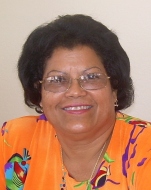
More MLAs for smaller districts, commission told
 (CNS): At a meeting with the Electoral Boundary Commission on Little Cayman a former candidate for Cayman Brac and Little Cayman says the three new MLAs called for in the new Constitution should be allocated to the three smaller districts. On Cayman Brac a current MLA, a former MLA and a past candidate all said that the vast majority of voters on the island wanted the voting system, whereby each voter gets two votes for two candidates, to remain the same. They were also adamant that Brackers did not want to see the district divided into two.
(CNS): At a meeting with the Electoral Boundary Commission on Little Cayman a former candidate for Cayman Brac and Little Cayman says the three new MLAs called for in the new Constitution should be allocated to the three smaller districts. On Cayman Brac a current MLA, a former MLA and a past candidate all said that the vast majority of voters on the island wanted the voting system, whereby each voter gets two votes for two candidates, to remain the same. They were also adamant that Brackers did not want to see the district divided into two.
On Little Cayman, Maxine McCoy Moore (above), one of threepeople who showed up to meet with the commission and its entourage last Friday (30 March), said she believes that the population of Little Cayman would surpass that of Cayman Brac in another 5 to 10 years. “That island is definitely growing and growing fast,” she said. She further believes that the Bluff on Cayman Brac will be the most populated area in the whole Cayman Islands in another 10 to 15 years.
She proposed that the new MLAs be allocated to East End, North Side and the Sister Islands, bringing the total of two each for East end and North Side and a total of three for Cayman Brac and Little Cayman. “The additional MLA for the Sister Islands should make Little Cayman his or her priority with the other two MLA’s concentrating mainly on Cayman Brac, but still as a team,” she said.
At the meeting on the Brac with commissioners – chair Carl Dundas, Norman Bodden and Adriannie Webb – Sister Islands representative Moses Kirkconnell, former MLA Lyndon Martin and former candidate Percy Whorms were in agreement that the status quo of the voting system on the two islands should remain. While only District Commissioner Ernie Scott and CNS were also at the poorly attended meeting, Kirkconnell pointed out that at the constitutional meetings before the elections the message from the people on Cayman Brac was clear. He also said it was important for the two MLAs from the district to work together. His job, he said, was to gather the views of his constituents and to take them to the Legislative Assembly for the debate on the matter.
Martin said that dividing constituencies into equal voting blocks created equity in the system. Noting that the current constitution stipulates that the district of Cayman Brac and Little Cayman must have at at least two representatives, he said this already deviated from that principle and the question was whether there should be a further “bastardisation” of the system if single member constituencies were created on Grand Cayman but not on the Sister Islands.
The one-time MLA, who stood and lost in the last election, said the current system was increasingly abused as candidates manipulated it by urging their supporters to only use one of their two votes. He said that in the last election particularly it became a campaign ploy and was stated directly from the platform. However, despite this and his thoughts on equity, Martin believed in retaining the status quo for the district and better educating voters to use both their votes.
Kirkconnell said that challenges the islands faced were unique to the district, not unique to either the east or the west of Cayman Brac and that if it were divided and only one district on the Sister Islands was held by the party in power it would create problems on the island and be very divisive.
Commissioner Webb pointed out that all elected members have to work together for the good of the islands as a whole. It should not make a difference how they get elected, she said.

Minister hopes TV show will deliver obesity message
(CNS):With well over a third of Cayman’s children now overweight the government has partnered with local non-governmental organisation AMF Partners to air a special television programme about the subject of childhood obesity The Big Hurt will air on Monday and Tuesday on Cayman27. This is the first programme in a two-part series which highlights the rapidly-expanding problem of childhood obesity. Through the eyes of four youngsters, it explores what obese children have to endure, how they struggle on a daily basis and how they are made to feel isolated. The show also offers solutions, and the Health Minister Mark Scotland urged parents to watch with their children.
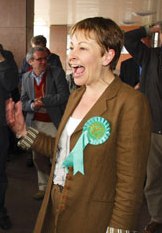
UK ‘Greens’ get first parliamentary seat
 (The Guardian): The Green leader, Caroline Lucas, promised today to be a radical and distinctive voice in parliament after overturning a hefty Labour majority in Brighton to become her party’s first-ever MP. Her stunning success, involving an 8.4% swing in the student and bohemian-heavy Brighton Pavilion constituency, marked the arrival of "a new political force in Westminister", Lucas said following a nail-biting eight-hour count that ended in ecstasy for her still disbelieving supporters. However, the Greens’ triumph was tempered by a slight drop in their share of the national poll, at about 1%.
(The Guardian): The Green leader, Caroline Lucas, promised today to be a radical and distinctive voice in parliament after overturning a hefty Labour majority in Brighton to become her party’s first-ever MP. Her stunning success, involving an 8.4% swing in the student and bohemian-heavy Brighton Pavilion constituency, marked the arrival of "a new political force in Westminister", Lucas said following a nail-biting eight-hour count that ended in ecstasy for her still disbelieving supporters. However, the Greens’ triumph was tempered by a slight drop in their share of the national poll, at about 1%.

Police arrest suspected cocaine dealer on 7MB
(CNS): Police said this morning that that had arrested 30-year-old man and seized an undisclosed quantity of cocaine as part of a police operation in the Seven Mile Beach area earlier this week. The RCIPS said the suspect dealer was arrested by officers from the drugs task force on suspicion of various drugs offences including possession of cocaine with intent to supply, on Wednesday, 5 May. The man has been released on police bail and police enquiries are ongoing the RCIPS stated.
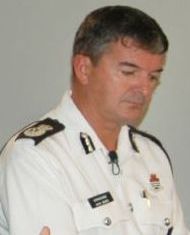
Baines admits cop fuel abuse
 (CNS): The police commissioner has admitted that a criminal investigation is ongoing regarding the abuse of the government’s fuel card management system, as revealed by the audit general’s report. David Baines denied that there was significant abuse by RCIPS officers of the system but said there may have been some misuse. He said police detectives were following up on transactions made on one card in particular, but the police boss suggested the problem was poor management of the system and not that fuel had been obtained fraudulently. Baines conceded, however, that he did not have enough officers to investigate the numerous transactions that were considered suspicious.
(CNS): The police commissioner has admitted that a criminal investigation is ongoing regarding the abuse of the government’s fuel card management system, as revealed by the audit general’s report. David Baines denied that there was significant abuse by RCIPS officers of the system but said there may have been some misuse. He said police detectives were following up on transactions made on one card in particular, but the police boss suggested the problem was poor management of the system and not that fuel had been obtained fraudulently. Baines conceded, however, that he did not have enough officers to investigate the numerous transactions that were considered suspicious.
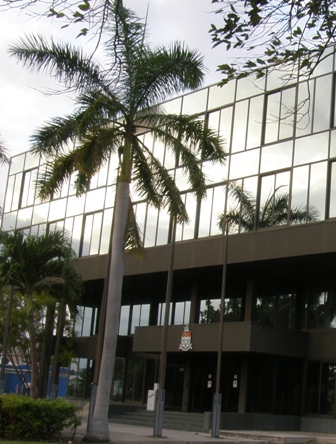
CS faces salary roll back
 (CNS): According to an internal memo sent to heads of department, this week, public sector salary cuts may not be as severe as had been feared. Following a Cabinet directive to reduce Civil Service personnel costs in March the Deputy Governor’s Office has finally decided to roll back the most recent salary increases across the board, of 3.2%, which is in line with the offer made by the Civil Service Association. Government is also cutting acting payments, reducing duty and other concessions, as well as removing flight and travel allowances for overseas workers. The government has also decided to drop the premium that departments will pay to CINICO for each public servant rather than a co-share option on health benefits.
(CNS): According to an internal memo sent to heads of department, this week, public sector salary cuts may not be as severe as had been feared. Following a Cabinet directive to reduce Civil Service personnel costs in March the Deputy Governor’s Office has finally decided to roll back the most recent salary increases across the board, of 3.2%, which is in line with the offer made by the Civil Service Association. Government is also cutting acting payments, reducing duty and other concessions, as well as removing flight and travel allowances for overseas workers. The government has also decided to drop the premium that departments will pay to CINICO for each public servant rather than a co-share option on health benefits.
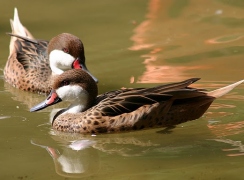
Last mangrove wetland in Barbados disappearing
 (PRNewswire): A new environmental study sharply critical of the Government of Barbados shows the key Graeme Hall mangrove wetland is disappearing due to outside pollution and poor water quality. The Graeme Hall wetland is the last remaining mangrove in Barbados – a red mangrove forest that has existed for no less than 1,300 years. It is the only wetland in Barbados recognized internationally under the Convention on Wetlands of International Importance (Ramsar).
(PRNewswire): A new environmental study sharply critical of the Government of Barbados shows the key Graeme Hall mangrove wetland is disappearing due to outside pollution and poor water quality. The Graeme Hall wetland is the last remaining mangrove in Barbados – a red mangrove forest that has existed for no less than 1,300 years. It is the only wetland in Barbados recognized internationally under the Convention on Wetlands of International Importance (Ramsar).
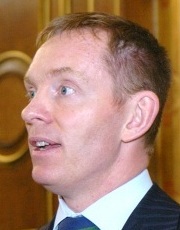
OT minister keeps his seat
 (CNS): Updated 8am — In what has proved to be an inconclusive result result in the UK general election, Overseas Territories Minister Chris Bryant has retained his seat. Although the Conservative Party has gained the most seats it has not won a majority and with less than a dozen seats to declare the Tories cannot yet form a government without the help of the Liberal Democrats. As a result the Labour government remains in power and Bryant in his job for at least the next few days. Bryant held on to his significant majority in his Welsh seat of Rhondda but the result for Great Britain as a whole remains far from certain.
(CNS): Updated 8am — In what has proved to be an inconclusive result result in the UK general election, Overseas Territories Minister Chris Bryant has retained his seat. Although the Conservative Party has gained the most seats it has not won a majority and with less than a dozen seats to declare the Tories cannot yet form a government without the help of the Liberal Democrats. As a result the Labour government remains in power and Bryant in his job for at least the next few days. Bryant held on to his significant majority in his Welsh seat of Rhondda but the result for Great Britain as a whole remains far from certain.
After thirteen years in office the Labour government has lost its majority but nor has the oppositionConservative party gained enough of the key marginal seats it needed to take office.